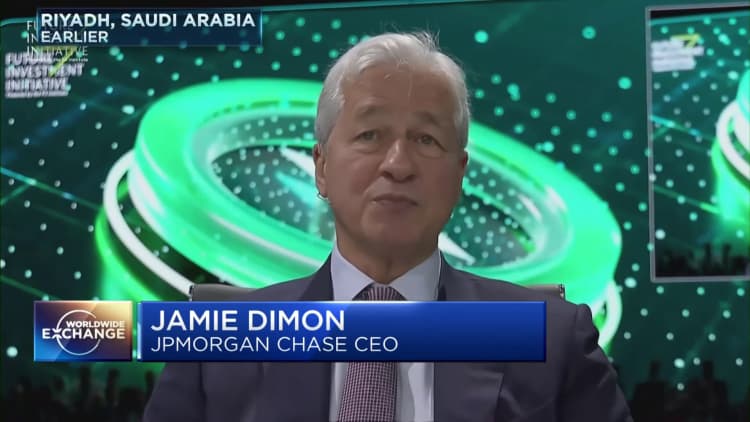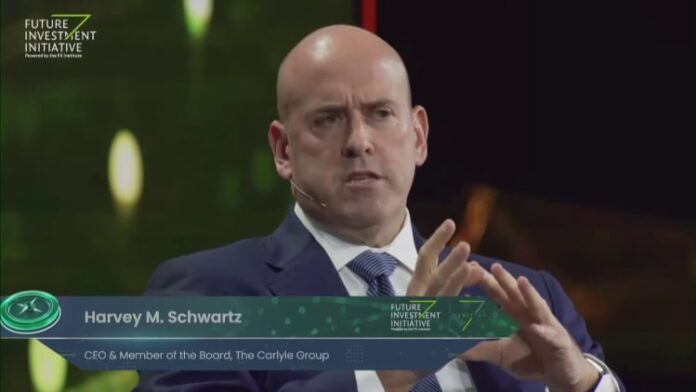Several of Wall Street’s biggest names gathered in Riyadh, Saudi Arabia, for the kingdom’s annual Future Investment Initiative, where they weighed risks and opportunities for investors and the global economy.
Bankers speaking on panels particularly highlighted headwinds – particularly in the short term – from multiple wars, an economic slowdown and an environment of high inflation and large budget deficits.
When asked about the risk outlook, Harvey Schwartz, CEO of Carlyle Group and former president of Goldman Sachs, advised caution but remained positive about the alpha opportunities. The Carlyle Group is one of the world’s largest private equity firms.
“I think in this particular period where we are coming out of a period of fundamental yield curve manipulation – which I think was done for very thoughtful reasons – but now as we move out of that period into a completely different regime, there is I think there is a reason for that. “Be careful,” he said.
“But I think the coming year will certainly present incredible alpha opportunities. But in general I think we’re going to have more headwinds than tailwinds, and my personal view is that there will be a lot of adjustment to this interest rate regime.” “There will be even more challenges in the near future. But that doesn’t mean there won’t be great alpha opportunities.”
To combat rising inflation that followed the massive Covid-19 economic stimulus across the world, central banks have implemented the biggest interest rate hike in decades. According to the International Monetary Fund, monetary policymakers have raised interest rates “by about 400 basis points on average in advanced economies and by around 650 basis points in emerging markets since the end of 2021.”
This dynamic increases credit risk and makes borrowing more difficult for individuals and companies. Schwartz also emphasized the need to remain liquid in times of war to best prepare for uncertainty.
“I think certain geopolitical risks, particularly war – again, the tragedy of war and the loss of life – I think are very difficult to price in the short term. Regardless of the conflict or where in the world it takes place,” he said.

“And I think you need to factor that into your risk assessment… If your risk tolerance is high, I think you can include a possibility. If your risk tolerance is low, then I think you are much more liquid and prepared for more uncertain outcomes, non-linear risk. You have to be prepared for that.”
In an earlier panel discussion at the same event, JPMorgan CEO Jamie Dimon highlighted the dangers of the present, particularly nuclear proliferation and war, and also stressed that the US has one of the largest peace deficits in its history. For his part, Ray Dalio, founder of Bridgewater Associates, said he was pessimistic about the global economy, citing war, growing wealth disparities and growing social divisions.
But Schwartz expressed longer-term optimism, pointing to what he sees as the big drivers of activity: advances in health and longevity, technology and artificial intelligence, and the energy transition.
“I think these are really important drivers of economic activity, innovation and growth. They’re going to need a lot of capital, we’re going to need great thought leaders, we’re going to need a lot of global collaboration. And it’s hard not to be here. “Today in the kingdom,” he added, “especially this morning when I heard Yasir (Al-Rumayyan, head of the Saudi Public Investment Fund) speak, I am not thrilled with what is on offer Opportunity.”

















